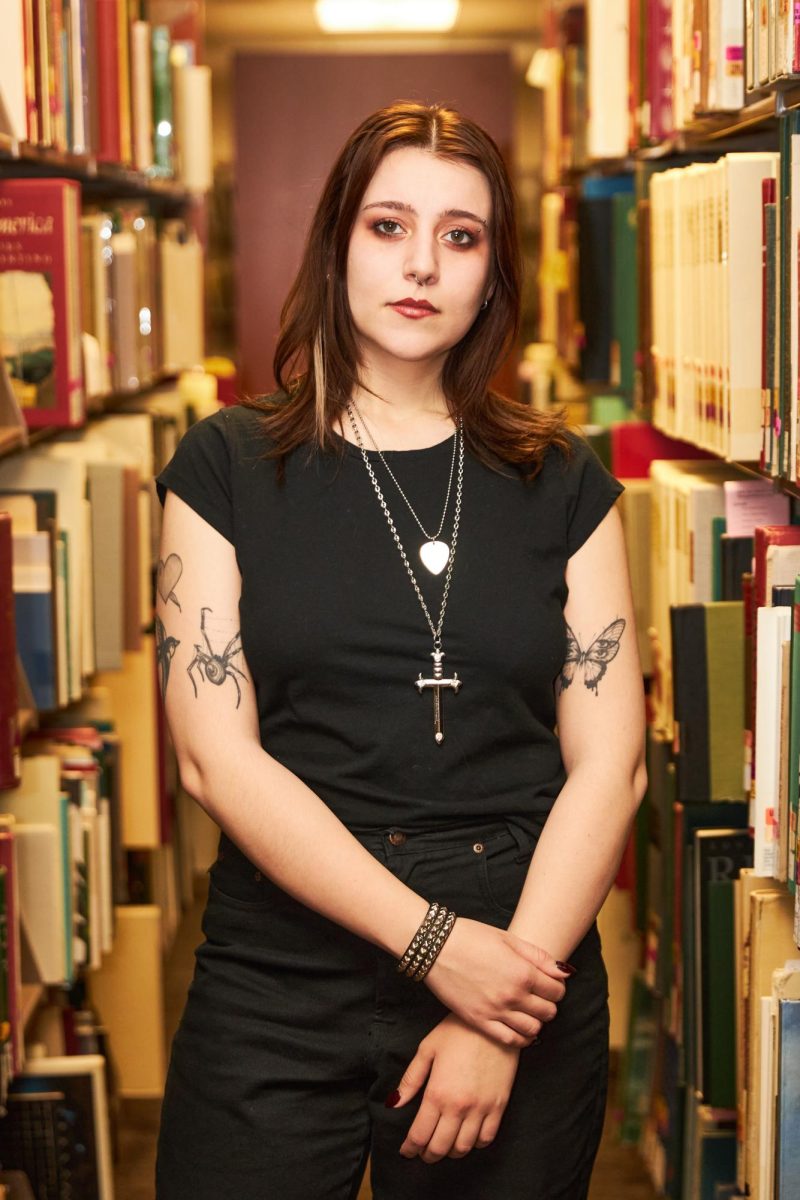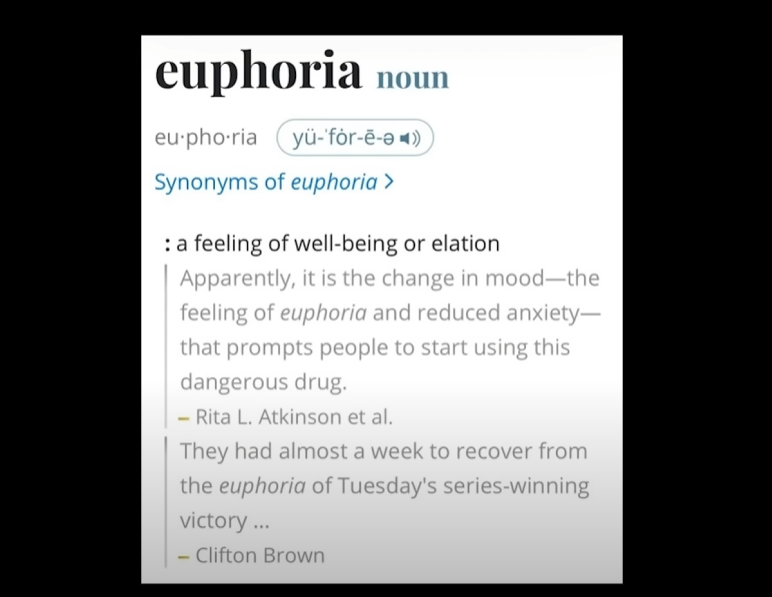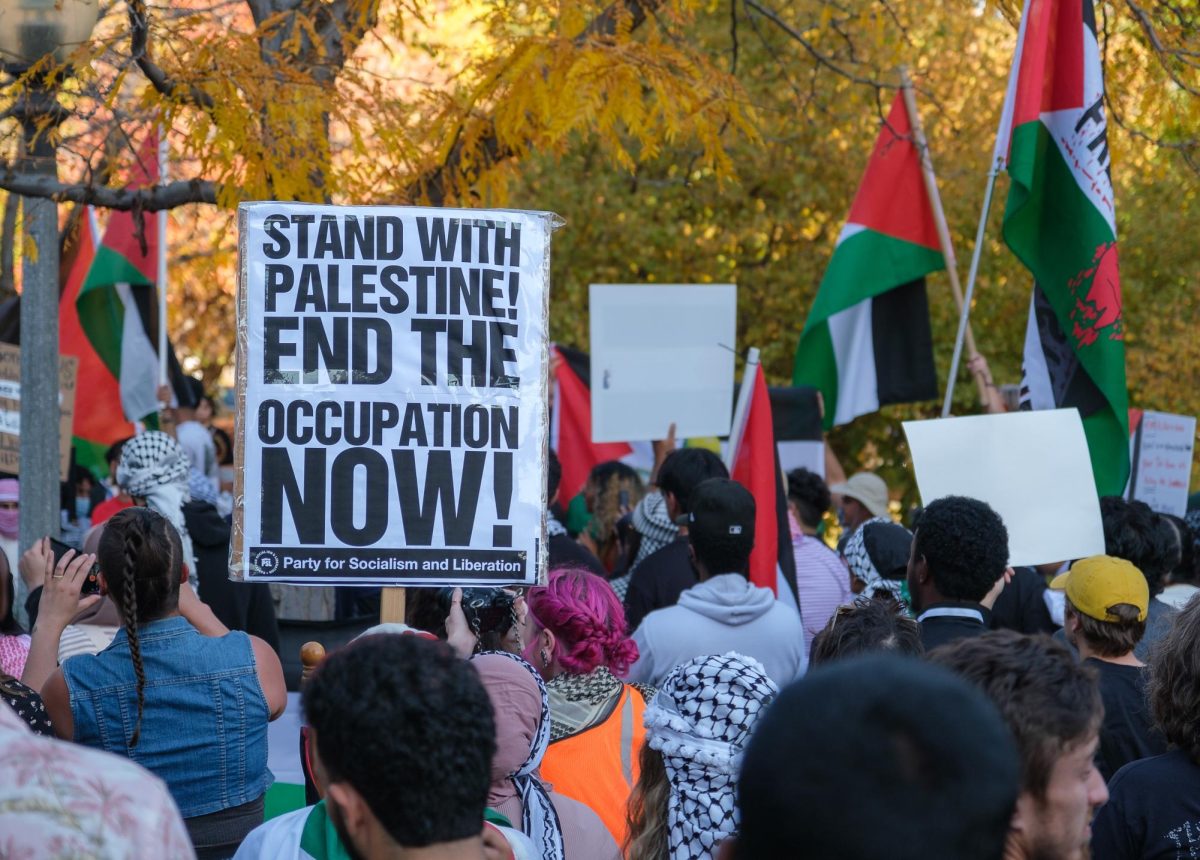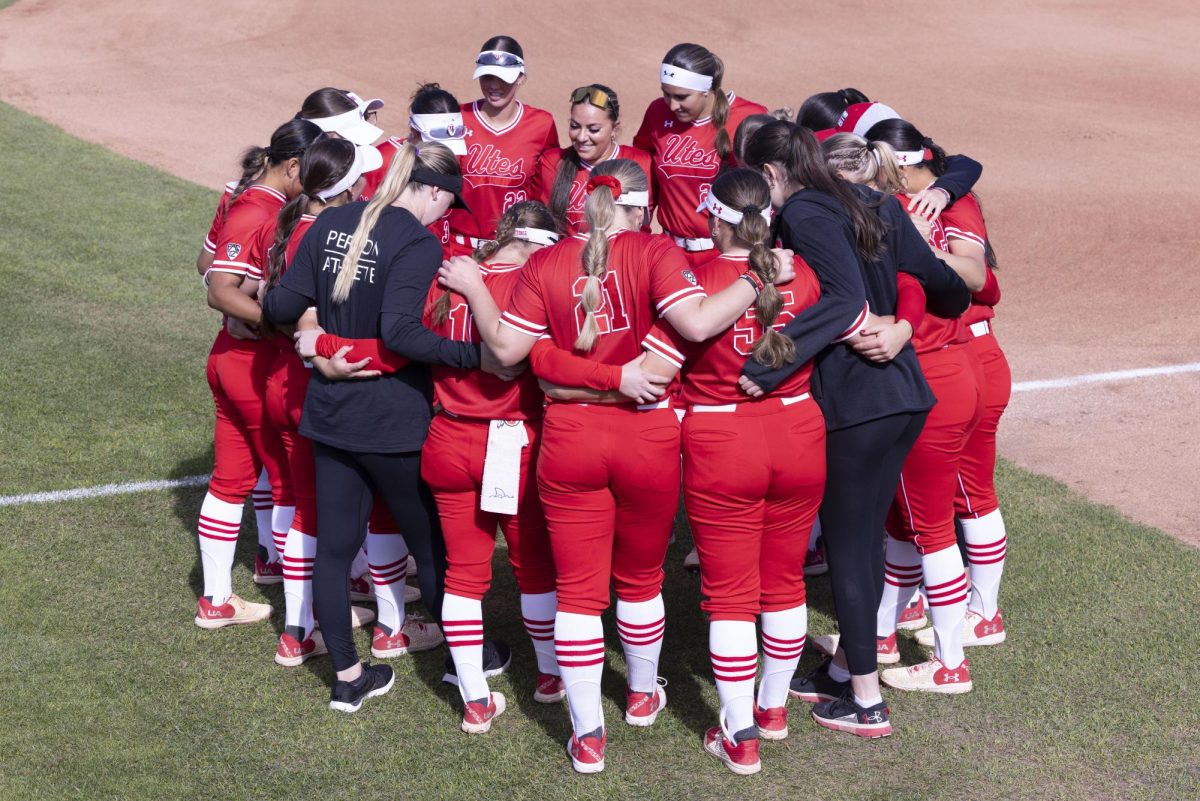In February 2003, Kelly Dougherty was in Kuwait preparing to invade Iraq with the 220th Military Police Company.
But on Thursday, Dougherty was at the U as part of a tour with “Wheels of Justice,” a group that travels across the lower 48-states in a bio-diesel fueled and solar powered bus seeking a nonviolent end to what they see as occupations in the Middle East. Dougherty is the co-founder of “Iraq Veterans Against the War.”
Although she opposed the war from the outset, Dougherty said while in Iraq, her eyes were opened to daily tragedy.
She and her fellow soldiers dodged attacks and lived in fear that they would be exposed to Saddam Hussein’s chemical weapons. One night, a missile hit eight miles away, in the ocean, and blew out the windows of her building-not exactly what she had in mind when she signed up for the National Guard in search of training and money for school.
She said the event gave her perspective about what the Iraqis encountered daily under a constant barrage of U.S. attacks.
After moving into southern Iraq, Dougherty said she witnessed poverty and saw people milling around without work to do. She said Iraqis were initially friendly, but after seeing the U.S. military rebuild nothing but its own bases and horde Iraqi oil, people began to lose hope.
“I remember guarding a broken down Halliburton fuel tanker while Iraqis waited in miles of lines for hours to get fuel,” Dougherty said. “This was an asset, so we protected it with force for three hours while they tried to get someone to fix it, and then they’d have us burn it or leave it and send us away.”
She said there was no protocol for telling Iraqi families what to do when their children were run over by American convoys or victimized by unnecessary shootings. When her company first arrived in Iraq, Dougherty said the military would sometimes get bored and, for practice, would raid tents belonging to Bedouins who lived in the desert herding sheep and camels.
“We’d make precautionary arrests because we didn’t have translators when we’d find things like weapons or sums of money that looked suspicious,” she said.
But often, those people who were arrested for questioning would not have their issues addressed and would end up being held for a year or more, she said.
Essentially, Dougherty said she believes the American occupation is furthering the divide between the United States and the Arab world.
“People there want Americans to leave today as occupiers, but they’d welcome us if we returned tomorrow as friends,” she said.
U student Jason Brakke, a junior in international studies and history teaching, served in Baghdad and Fallujah by escorting some of Iraq’s 50 most wanted to different interrogations with the National Guard. Brakke said he disagreed with virtually everything Dougherty said, and he believed the meeting gave a lot of misinformation.
“A withdrawal from Iraq now would be wrong on many levels,” he said. “It would lead to a reprisal of killings. They’d take out Americans in mass murder…Peace kills, sometimes. It’s our moral obligation to stay there.”
Brakke added that the speech was disappointing because it presented the same one-sided message that popular media show. He said he hoped people would think critically about the message.
But Scott Veenis, an undeclared freshman, said he came because Iraq has been in the media so much, and he thought the event gave good information from a “perspective I haven’t seen before.”
Likewise, Chris Fahim, a junior studying math, said he went to the recent war protests in Salt Lake City organized by Mayor Rocky Anderson, and that got him interested in the subject. “I thought it was very interesting,” he said. “It’s nice to hear what’s really going on.”










